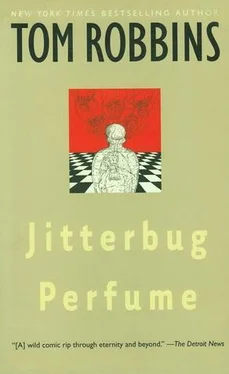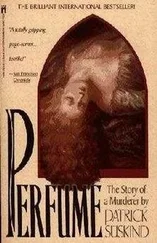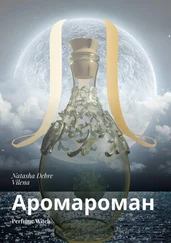Alobar signed on as a guard with a spice caravan, and they traveled by camel to Constantinople, humpbacking out of the sandy wings of the east onto that golden stage where Emperor Basil II was directing, under the auspices of Byzantine Christianity, a long-running drama of expansion and wealth. Suspecting that immortality might be fostered more by comfort than by asceticism, but having lived hand to mouth during all of their time together, the couple elected to settle temporarily in Constantinople and sample its luxury.
Neither of them had ever resided in a large city before, and Constantinople, a major trading center, a cosmopolitan link between East and West, a mosaic-tiled hive of commercial and religious honey, woke them daily with an excited nudge from its gilt elbow. Aided by Kudra, whose understanding of raw materials was studiously passed on to him, Alobar rose rapidly from stevedore to manager of Basil's spice warehouses, a position whose salary afforded them a smart house overlooking the Bosporus, a silver tea service, and carpets thicker and more colorful than the ones that had disappeared from the caves with the Bandaloop. Upon those rugs (dyed in some cases with beet juice), they sipped mint tea, munched spinach pies and melons, made love in ways that emphasized the utra in Kama Sutra , and perfected the breathing techniques that apparently are indispensable to extreme longevity.
Bathing techniques also are important, and, fortunately, in Constantinople they were easy to practice. As Alobar was well aware, most of Europe's two-legged mammals thought of water as an element only slightly more suitable for external application than fire. The unpopularity of the bath was both widespread and persistent (in Louis XIV's incomparably elegant Versailles, there was not a single vessel designed for bathing, a fact that one day would lead Kudra to regard the Sun King's court a potential market for her incense; late in the twentieth century, there were still great numbers of Europeans who refused to wash their bodies lest they remove some quality — corporeal or incorporeal — deemed essential to their image of themselves). As a result of its constant intercourse with the Far East, Constantinople had acquired an appreciation of the protracted hot bath, for the purpose of which a network of stone aqueducts channeled water into the city from reservoirs in the nearby hills. So that they might bathe together, a practice forbidden in the sexually segregated public baths, Alobar and Kudra tapped into the aqueduct system and built a tile-roofed, waist-deep tub at the rear of their house, between the rosebushes and the pistachio tree. Kudra spoke fluent amphibian, but Alobar, conditioned by the European aversion, frequently had to be coaxed into the tub by a reminder that ritualistic bathing enhances longevity, or by a suggestion that a soak might add some unusual slippery dimension to the coital functioning of his or his companion's organs.
“Nowhere under yon setting sun will you meet water meant for bathing in,” Alobar would caution Kudra whenever she grew antsy, and if that did not lull her restlessness, he would add, “No perfumes will you meet, either.”
He was correct, there was no perfume west of the Bosporus. In the modern sense, there was no perfume anywhere, for the process by which a flower's fumes are extracted and preserved using alcohol distillation was not to be discovered for another hundred years, when Avicenna, the Arabian alchemist, hit upon it while trying to isolate for Islam the soul of its holy rose. In eleventh-century Constantinople, however, aromatics were as popular as they were in Kudra's India, and, as in India, they came mostly in the form of thick resins and gooey gums. Each morning, a servant would bring Basil II a small cedar box filled with resinous frankincense and gummy myrrh, whereupon the emperor would smash the box over his own head, allowing its contents to trickle down his neck and beard. As time passed, Basil began to act rather punchy from all the box breaking, and frequently his eyes were sealed half shut from the gum. He smelled great, though, and when he died in 1025, his successor, wishing to exude an even larger glory, took to breaking two boxes over his head every day. Perhaps it was because of their vigorous application of scent that neither of the emperors was sufficiently alert to notice that their spice manager stayed constant in appearance even as they aged — although others in Constantinople noticed well enough: in the court and in the church, gossip rustled its leathery wings.
“The emperor, the bishop, the camels at the marketplace, the olive trees on the hillsides, the ships in the harbor, every and each grow older. This Alobar and Kudra do not.”
“They are always in good humor and health, yet they never attend devotion.”
“They bathe together.”
“They smile too much.”
“She anoints herself with sweet unguents as though a man.”
“Nobody knows whence they came.”
“They are often at the act of love, as their noisy demonstrations attest, but produce not a child.”
“It is whispered that they eat their children as soon as they are born.”
“Aye. Eating babies is what keeps them young.”
“Dark, she is.”
“Haughty is he.”
“Nonbelievers.”
“Supernatural.”
“Agents of the Evil One.”
“Our children are in peril.”
Rumor by rumor, suspicion of them intensified, until—"Did you hear? A small boy disappeared yesterday at play on the Bosporus" — one night they found themselves fleeing Constantinople just ahead of a mob. Alobar bribed a Greek captain to hide them among the stacks of ivory tusks lashed to his deck, and it was from that vantage that they witnessed their home of nearly thirty years burning to the ground.
“Hold back your sobs,” Alobar consoled, squeezing one of Kudra's dolphin thighs. “We have learned from this experience two important things. First of all, our Bandaloop experiment is successful; we have slowed, if not turned away, the wrinkle-carving, silver-sowing herald of death. About that we can rejoice. Second, we now are aware that a display of undue longevity creates problems in a community conditioned to age and die. In the future, we must take that cautiously into account.”
He pointed to their burning house, which by then was but a glowing ember on the horizon. “We have lost a roof over our heads, a fine teapot, an overrated bath, and some carpets stained by our love. Let them go. We have aliveness, instead. And on this entire world, which I know for fact to be as round as a beet, there is no other pair like you and me.”
Through her tears Kudra grinned. “I'm certain that we shall find other rugs to stain,” said she. “But even you will miss our bath, wait and see. As for the teapot. .” With a flourish, she produced it from beneath her cloak.
Gathering her to him, teapot and all, Alobar pretended to search under her wraps. “For what I know, you may have hid our bath in there, as well. Ah, I thought so! I feel something hot and wet.”
“You may well wish it were a bath, before too long. Oh, what is my poor large nose going to think of a people who neither bathe nor wear perfumes?”
“Well,” said Alobar, “my scheme is to condition you straightaway by introducing you to Pan. Of all who stink in the western lands, none stinks in such grand capacity as he. Pan is a god and is my friend.”
“Only you, Alobar. Only you among men could claim a god for a friend. And naturally it would be a god unwashed and smelly.”
She embraced him, swabbing his beard with kisses at the same moment that the ship plunged its black, wooden tongue into the murmuring mouth of the outer waters, knocking salt teeth loose in every direction; and as the lash lines shuddered from the recoil of that ancient kiss, as the mast pole tilted its neck like a voyeur for a better view, and the mainsail, with a raucous, swift gesture, shook a skyful of stars out of its folds and creases, Kudra and Alobar were carried off to Greece — uncertain, intrepid, possibly immortal, decidedly in love. .
Читать дальше












